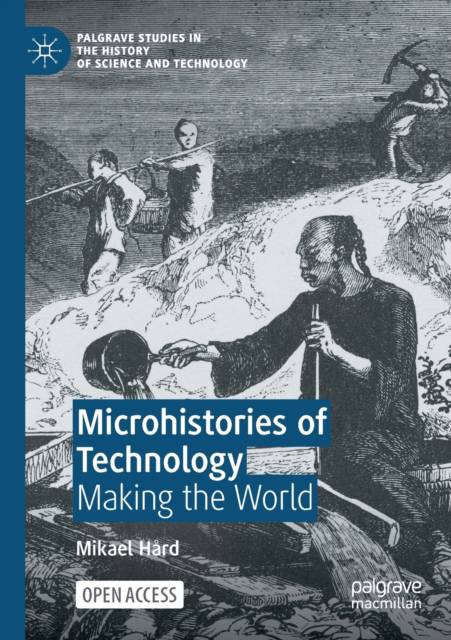
- Afhalen na 1 uur in een winkel met voorraad
- Gratis thuislevering in België vanaf € 30
- Ruim aanbod met 7 miljoen producten
- Afhalen na 1 uur in een winkel met voorraad
- Gratis thuislevering in België vanaf € 30
- Ruim aanbod met 7 miljoen producten
Zoeken
Omschrijving
In this open access book, Mikael Hård tells a story of how people around the world challenged the production techniques and products brought by globalization. Retaining their autonomy and freedom, creative individuals selectively adopted or rejected modern gadgets, tools, and machines. In standard historical narratives, globalization is portrayed as an unstoppable force that flattens all obstacles in its path. Modern technology is also seen as inexorable: in the nineteenth century, steamships, telegraph lines, and Gatling guns are said to have paved the way for colonialism and other forms of dominating people and societies. Later, shipping containers and computer networks purportedly pulled the planet deeper into a maelstrom of capitalism. Hård discusses instances that push back against these narratives. For example, in Soviet times, inhabitants of Samarkand, Uzbekistan, preferred to remain in-and expand-their own mud-brick houses rather than move into prefabricated, concrete residential buildings. Similarly, nineteenth-century Sumatran carpenters ignored the saws brought to them by missionaries-and chose to chop down trees with their arch-bladed adzes. And people in colonial India successfully competed with capitalist-run Caribbean sugar plantations, continuing to produce their own muscovado and sell it to local consumers. This book invites readers to view the history of technology and material culture through the lens of diversity. Based on research funded by the European Research Council and conducted in the Global South, Microhistories of Technology: Making the World shows that the spread of modern technologies did not erase artisanal production methods and traditional tools.
Specificaties
Betrokkenen
- Auteur(s):
- Uitgeverij:
Inhoud
- Aantal bladzijden:
- 290
- Taal:
- Engels
- Reeks:
Eigenschappen
- Productcode (EAN):
- 9783031228155
- Verschijningsdatum:
- 21/02/2023
- Uitvoering:
- Paperback
- Formaat:
- Trade paperback (VS)
- Afmetingen:
- 148 mm x 210 mm
- Gewicht:
- 371 g

Alleen bij Standaard Boekhandel
+ 152 punten op je klantenkaart van Standaard Boekhandel
Beoordelingen
We publiceren alleen reviews die voldoen aan de voorwaarden voor reviews. Bekijk onze voorwaarden voor reviews.








